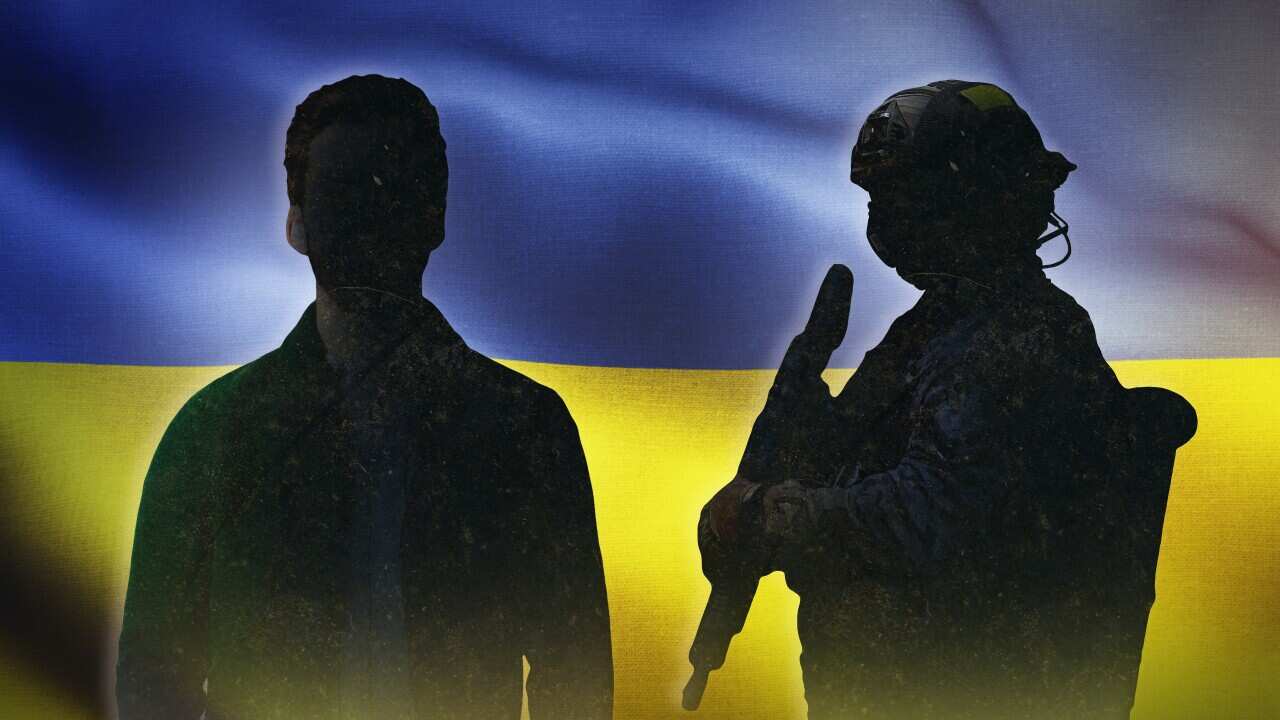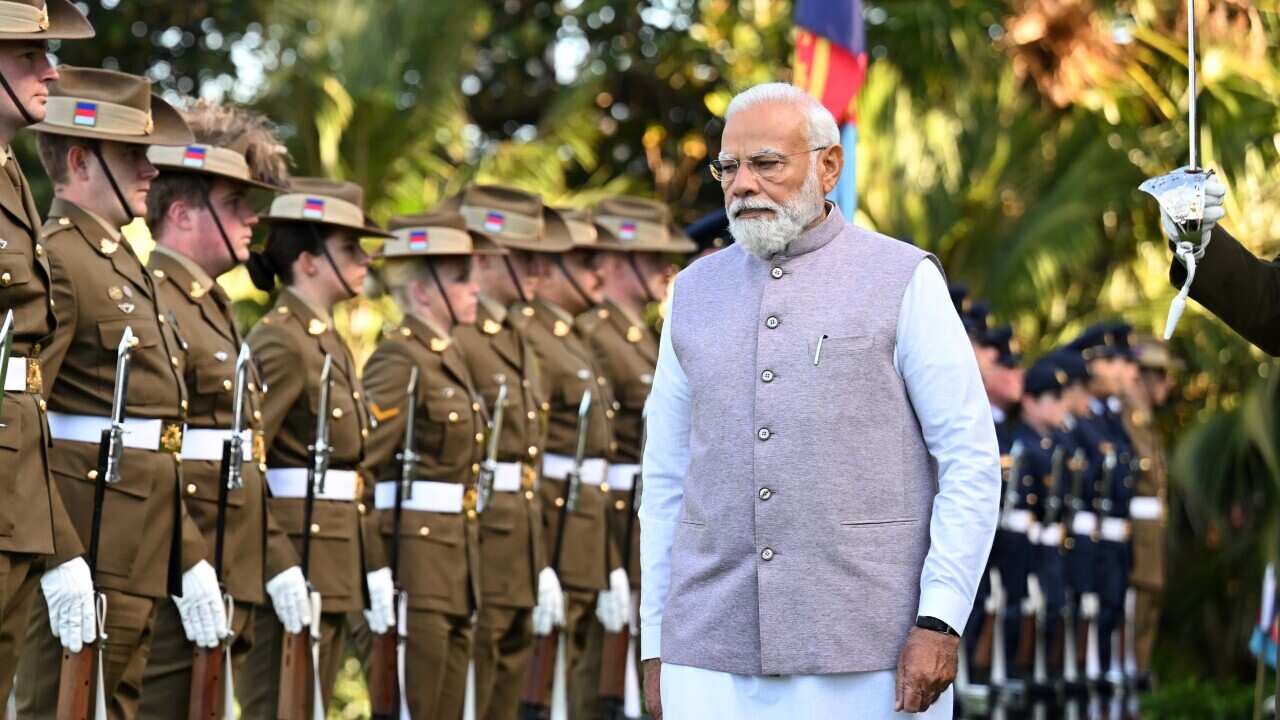It's been more than two years since Russia invaded Ukraine, and European leaders are warning the world that a 'new era' of war has begun.
Poland's Prime Minister Donald Tusk said war is no longer a "concept of the past", with "literally anything" possible.
"I know it sounds devastating, especially for the younger generation, but we have to get used to the fact that a new era has begun: the pre-war era. I am not exaggerating; this is becoming clearer every day," he told local media.
"I don't want to scare anyone, but war is no longer a concept from the past. It is real, and it started over two years ago."
While the conflict is happening a world away, European security and conflicts significantly impact Australia.
So what does this mean — and are we prepared?
Is Europe in a 'new era' of war, and what does this mean?
Tusk said he had observed a change in European mentality regarding military and defence and called for more consistent protection of the European Union's external borders.
Germany's vice chancellor Robert Habeck also said he sees no hope of a quick and peaceful end to the Russian war against Ukraine, and indicated Germany would invest more in its security.
"We long for peace. Yes. But the honest, bitter answer is: there will probably not be a quick, good end, even if we wish otherwise," he said in a video published on X.
"We have to adapt to the threat situation. Anything else would be naive."
Mick Ryan, military strategist and retired Australian army major general, told SBS News the comments from European leaders were a "pragmatic realisation" of the threat posed by both Russia and China.
" with the West for a long time, and we have been extraordinarily slow in dealing with that," he said.
"I think what the Polish prime minister has said is pragmatic, particularly given the statements of Putin over the last few years as well as members of his government
"It calls for action in both Europe as well as in our region."
How does war in Europe impact Australia?
International events, including wars, have significant economic, trade, and geopolitical implications for Australia.
Ryan said security and prosperity in Europe are important to Australia and worldwide.
He warned Australia may be unprepared for the effects of ongoing war in Europe due to having comparatively minor direct involvement in war and conflicts.
"If Europe doesn't do well because (it's) at war, the Australian economy won't do well — so Europe is directly connected to Australia's security and prosperity, and it also has an impact on Asia as well," he said.
"We've been very lucky, which has made us generally as a country very complacent about these issues."
While Australia is not a member of the security alliance NATO, it cooperates in areas of mutual interest as a partner across the globe.
Australia has worked with the alliance since 2005 and has been an "enhanced opportunities partner" since 2014.
The ties have only grown between the two following Australian Defence Force deployments to Afghanistan.
Is the West prepared for a 'new era' of war?
At the EU leaders summit in March, EU Council President Charles Michael called on leaders to take "radical and concrete steps" to bolster their nation's defence forces.
Fundamental shifts in alliances and security are already taking place, including Sweden and Finland's accession to NATO, with both applying to join after Russia invaded Ukraine.
Some have also taken steps to increase military spending and strength.
Poland has committed to spending over 4 per cent of its GDP on defence this year, with plans to double its land forces, while Denmark has announced it will expand its military conscription to include women for the first time.
Ryan said many elements of war and conflict need to be addressed to prevent a "catastrophic" wider conflict from breaking out.
"There's a political dimension, there's a diplomatic dimension where we need to step up efforts to deter the aggression, the coercion, and other actions of authoritarians so we don't slip into some kind of catastrophic conflict," he said.
"And then there's a physical dimension to it, which is the military, the intelligence agencies and civil defence aspects.
"And all of these, particularly in Europe and in Australia, are very much underdone — with the possible exception of the intelligence agencies."
Ryan said our militaries have "very little capacity" to expand quickly.
"So there's a long way to go, and this pre-war era is giving us a warning to fix all of these things," he said.
What should Australia be doing?
When it comes to Australia specifically, Ryan said preparation and building capacity to deter conflict should be prioritised.
He also suggested Australia should prioritise investment into local defence industries, and ensure technology can be deployed in shorter timeframes.
"You don't deter conflict just by talking about it," he said.
"You deter it by talking about it, plus resourcing all the different elements of your national security apparatus, including the military with advanced technologies and lots of talented people to ensure your adversaries look at you ... and every morning they think 'not today'".
The issue of military spending has been contentious in Australia.
In one of the most ambitious defence undertakings in the country's history, Australia has entered into a nuclear submarine deal with the United Kingdom and United States in an effort to deter China from blocking sea routes.
As part of the agreement, up to eight new Australian-made AUKUS class conventionally armed but nuclear-powered submarines will roll off the production line from the early 2040s.
It’s predicted one would be produced every three years, and the program is expected to cost Australian taxpayers between $268 billion and $368 billion by the mid-2050s.
In February, the government announced it would boost its defence spending by an additional $11.1 billion over the next decade in an effort to double the country's war fleet.
The government has estimated its defence spending will rise to 2.4 per cent of GDP by the early 2030s.
-Additional reporting by AAP













